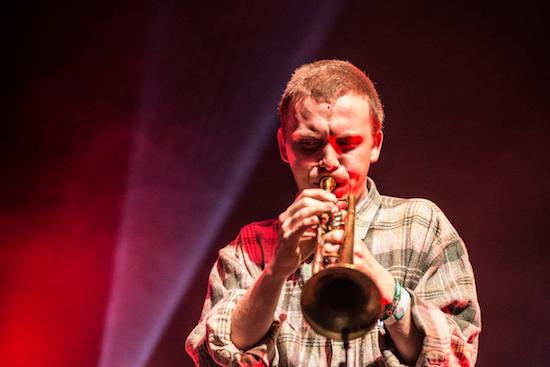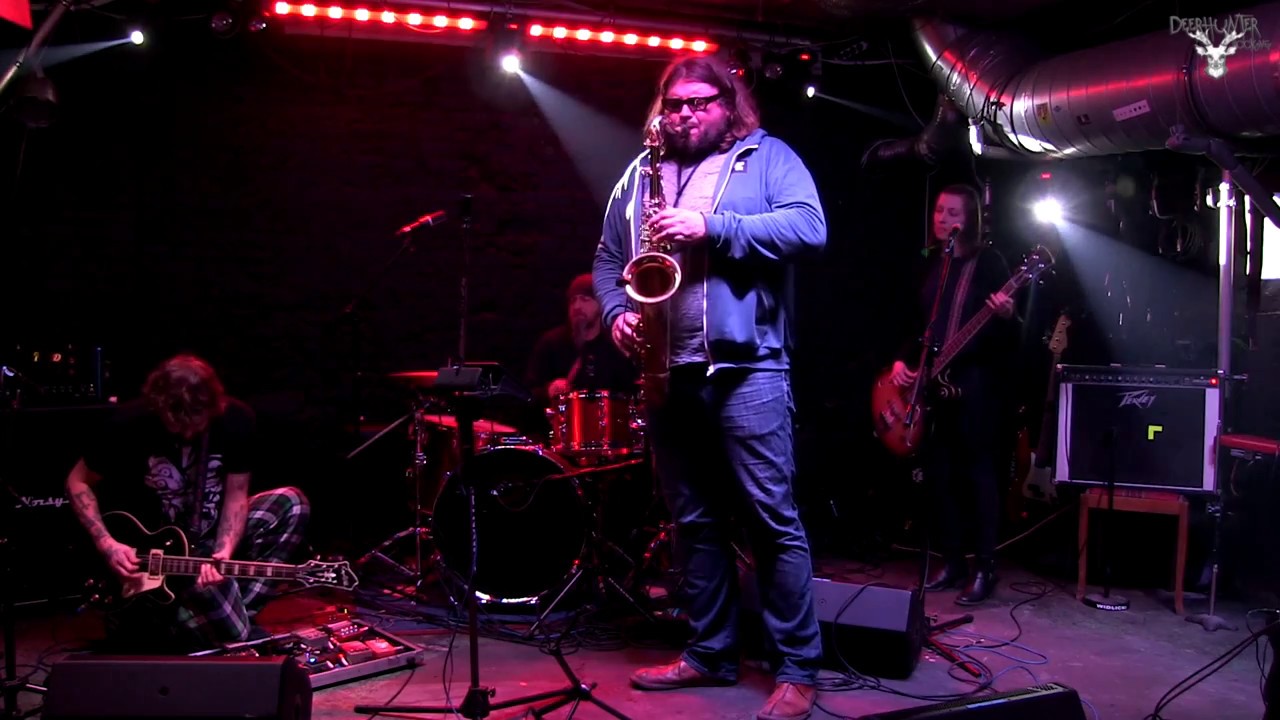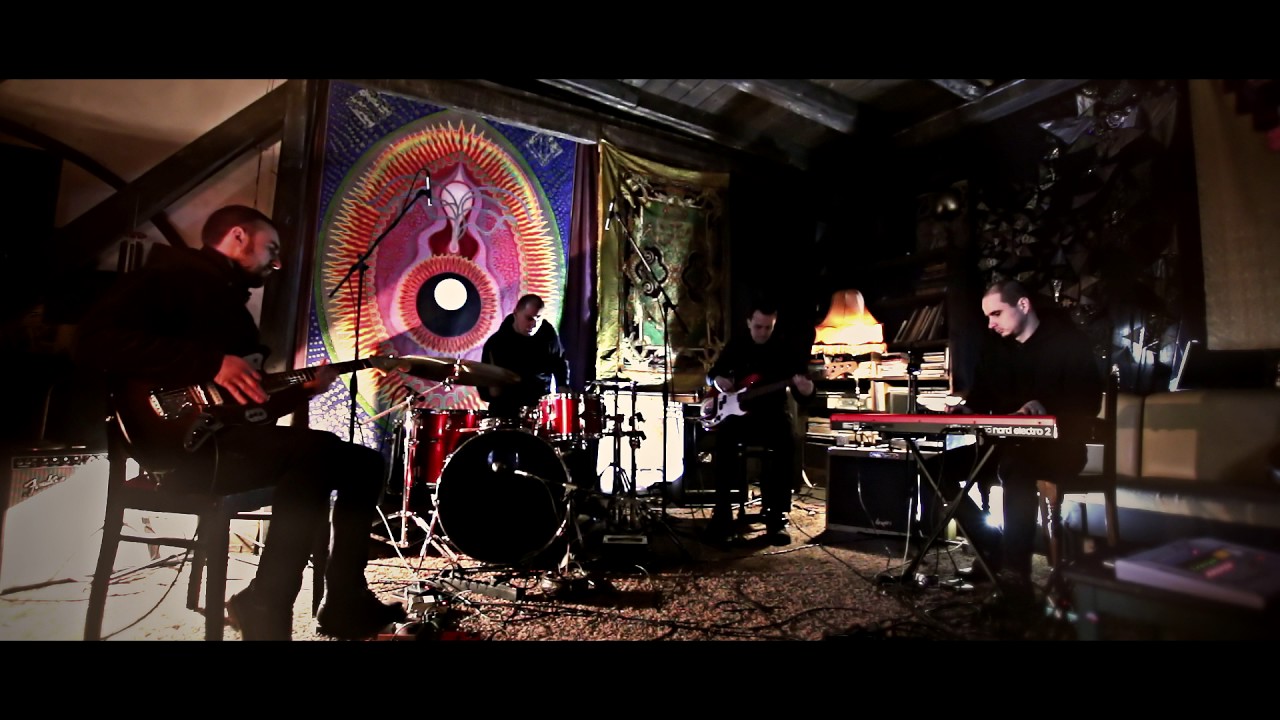John Lydon once told this writer that, “being British is all about irony.” With that in mind, it’s worth pausing for a moment and savouring the irony that right at the point that Poland and many of her neighbouring countries are producing music that’s ready to transcend borders, Britain is about to engage in a messy, painful and undoubtedly expensive divorce from Europe. Seriously, what kind of a fucked up situation have we found ourselves in when the unfairly and much-maligned so-called millennials are wanting to engage more deeply on a cultural and social level, yet economics and politics from an older generation pining for a time that never existed is putting up walls and barriers where none are needed?
Time was that sticking the adjective “Polish” in front of any musical genre would’ve been met with hysterical howls of derisive laughter. However, as regular readers of The Quietus will know, the music that’s been emanating from Poland not only stands proudly against anything being produced by long established sources, it doesn’t even need any adjectives denoting its origin. Good music, wherever it’s from, knows no borders.
Accordingly, there’s certainly a degree of confidence surrounding the Enea Spring Break Festival in Poznań, Poland, and much of it is well placed. Now in its fourth edition, the festival is essentially a showcase of young, unsigned talent rubbing shoulders with more established acts and performing in front of a combination of music fans hungry for something new, and music industry figures including managers, PRs, booking agents, A&Rs and of course journalists.
Spread over three days and 15 venues, 135 bands have the opportunity to do their do in the hope of securing deals, festival slots and industry contacts and during our stay here, The Quietus has the opportunity to sample the good, the bad and the ugly. Though nothing falls into that latter category, it does bear mentioning that some band name sound a little, well, crap to anyone not from Poland. That’s right, Eric Shoves Them In His Pockets and the seriously whacked out Rhythm Baboon – we’re talking about you. And Bastard Disco – we can see you trying to sneak out of the door.
With the venues ranging from theatres, castle courtyards, pubs, cafes and clubs and all within easy walking distance of each other, there’s no difficulty in familiarizing oneself with the centre of one of Poland’s oldest cities. And as your correspondent pounds the streets of Poznań, two things become very clear over the course of the weekend. The first is that Kraków’s Instant Classic label shows absolutely no signs of failing to live up to that name and the second is that electronic music is rapidly becoming a force to be reckoned with.
On the former point, Instant Classic score a particularly potent double whammy on the first night of the Spring Break festival. Over at the Pod Minogą bar, ARRM are band that truly stand out from what else has gone before them. It helps that the venue is such a perfect match. Pod Minogą is one of those bars that make you want to take up smoking again. Wooden panelled and dimly lit, the venue is one of those places that transports you back in time when faux folkies wouldn’t have had a sniff of owning a drinking establishment. Factor in a salty atmosphere and it’s difficult not to recall Camden before it turned into a theme park.
Formed by members of post-black metal band Thaw, ARRM carefully set the atmosphere and agenda before they’ve even taken the stage. The twanging drone of a sitar throbs hypnotically over the PA and the minimal red light and chairs on stage suggest that if a séance isn’t going to take place then something ethereal is. And so it proves. Guitarist Artur Rumiński and bassist Rafał Miciński sit on opposite sides of the stage facing each yet they barely acknowledge the other’s presence, let alone the audience. Behind them is drummer Michał Leks and keyboardist Maciej Śmigrodzki. Gradually and methodically, Rumiński begins to pick out series of haunting and menacing arpeggios that drip from the PA like water running down a windowpane. He’s soon augmented by the others in an almost delicate yet forceful fashion, and the epic ‘Pinewood’ is under way. If Earth were to soundtrack a David Lynch – and by now the venue is resembling something from one of his films to the extent that you’re half expecting a backwards talking dwarf to take the stage – then this would be the result.
It comes as little surprise, then, to discover that ARRM have released a split and eponymous album on yes, Instant Classic, with the bizarrely-named Lonker See. Hailing from Gdynia, the four-piece deliver psychedelia so utterly intense that it feels as if the universe is about to collapse. But they’re brilliantly deceptive about it. Fearsome-looking guitarist Bartosz Borowski gently elicits glorious cosmic blues licks from his guitar as man-mountain saxophonist Tomasz Gadecki begins to blow up a storm that rises to brain-frying levels. What’s completely unexpected is the vocal contribution from bassist Joanna Kucharska. Standing stage left and locked into a seductive groove, her sweet voice initially appears as if coming from nowhere. Between them, ARRM and Lonker See are raising the psychedelic bar by some distance.
But what of the electronics? The demi-monde of the Spring Break’s aftershow parties at variety of venues including Projekt LAB and Klubokawiarnia Meskalina are soundtracked by techno and house music but providing one of the live highlights is the collaboration between Dumplings singer Justyna Święs and Rysy founder Wojtek Urbański. Having written new music for a theatrical play based on French author Michel Houellebecq’s novel The Map And The Territory, the six tracks making their debut here in the courtyard of the Zamek (the Imperial Castle) show a leap forward for both artists.
Indeed, the last time The Quietus encountered Święs at the 2014 OFF Festival, her performance with The Dumplings revealed a singer just about getting into her stride. Now aged 20, there is an undeniable confidence about her performance that coalesces with Urbański’s leftfield pop. With just six songs to present, the set is relatively short but it’s packed with enough clout to suggest that further collaborations could yield equally memorable results.
Bringing all of these strands together is the figure of Wacław Zimpel. One of the most intriguing musical figures to have emerged Poland, Zimpel is restless musician and composer whose love of improvisation is reflected in his constant search for new musical avenues to explore. Ostensibly a clarinetist, Zimpel’s curiosity in the endless possibilities music has to offer has led him to create a stunning raga/jazz fusion with Saagara’s second album, 2, which is already shaping up to be one of the most memorable and exciting albums to have been released this year.
Taking the stage in the main auditorium in the Zamek on the opening night of the Spring Break festival for what’s a homecoming gig, Zimpel’s explorations see him mining the possibilities of electronics and loops. Pleasingly, Zimpel eschews the easy route of plugging a laptop into the PA and jamming along with it; here he creates the loops and electronic sequences live and with that comes the thrill of witnessing an artist striving to hit the nail on the head. Sometimes he gets the loop right, sometimes he doesn’t so the intrigue is in watching him make the pass again.
Adding to the drama unfolding before us is the fact that tonight Wacław Zimpel is performing solo. But the moment he gets that looped groove right, there’s an additional thrill to be had as he adds his bass clarinet that he feeds through various effects. The result is utterly hypnotic and the two untitled pieces that lead tonight’s performance are a tantalising glimpse of where Zimpel may be headed next.
The use of the khaen, a 3000-year-old prototype mouth organ from Laos, finds Zimpel on more familiar territory with ‘Lines’ from the album of the same name. Here, though, the electronics are more pronounced and the looping of the track’s central motif frees up Zimpel to draw inspiration from deep within his imagination. This is an incredible performance from an artist who shows no signs of slowing down or hitting any kind of block whilst making the listener genuinely excited as to where he might head next.
What’s manifestly clear is that any of these artists could easily transcend geographic borders to create an international cultural dialogue. Creatively daring, it pays to open up ears and eyes to what’s going on outside of your comfort zone. Poland may not seem like an obvious choice for a lot of people, but for those willing to dip their toes into new waters and sample what’s on offer, the rewards are abundant and genuinely nourishing.




